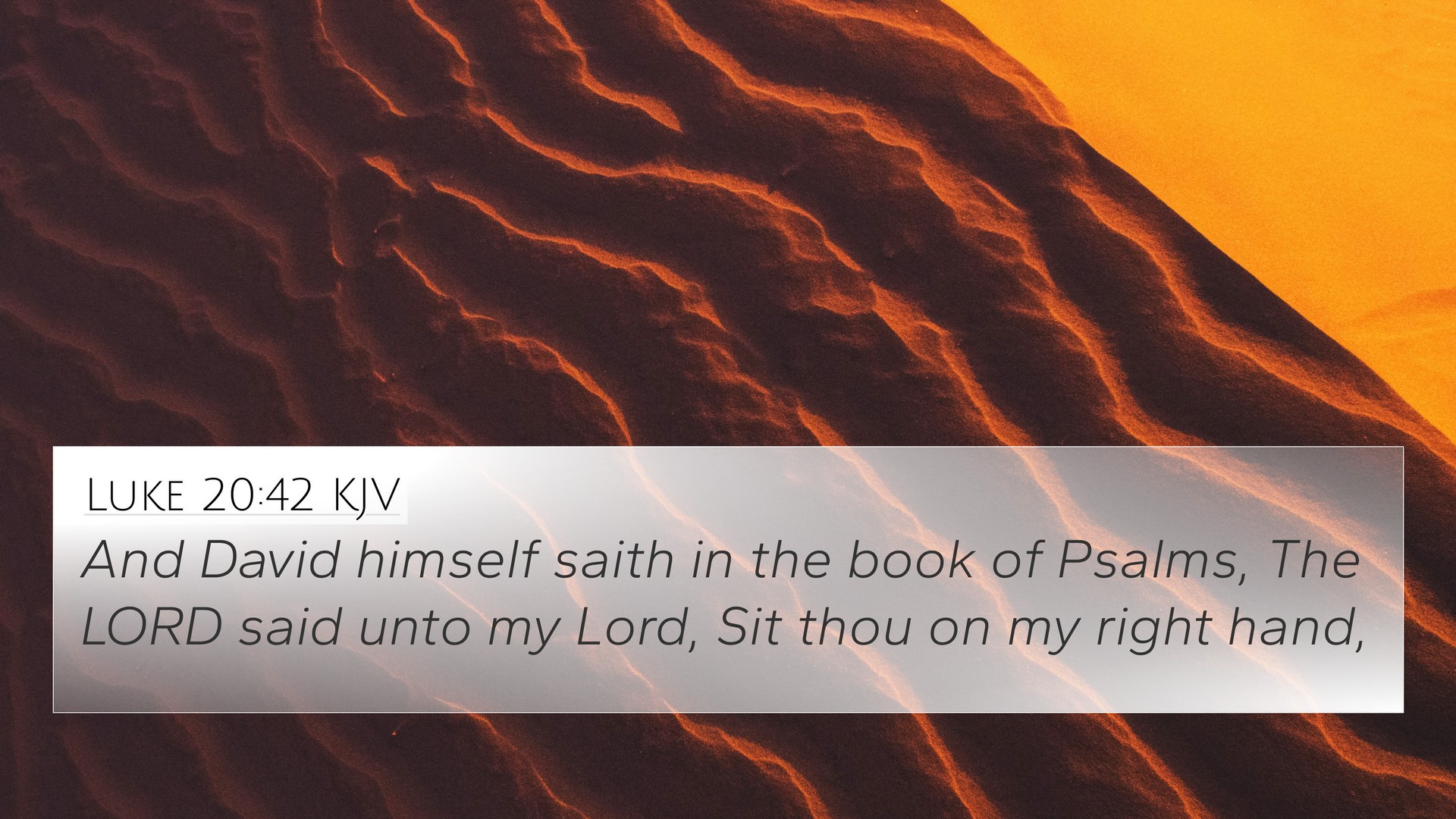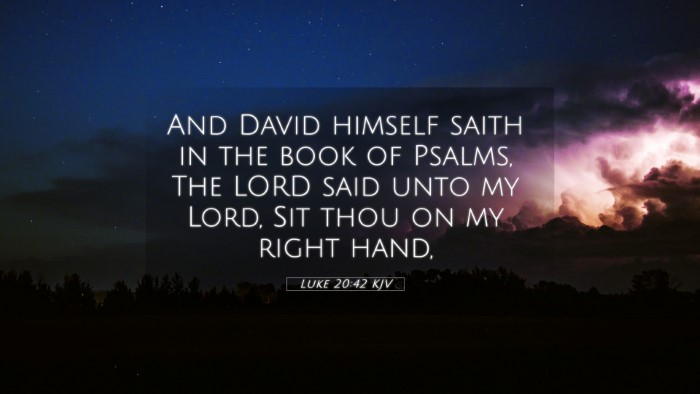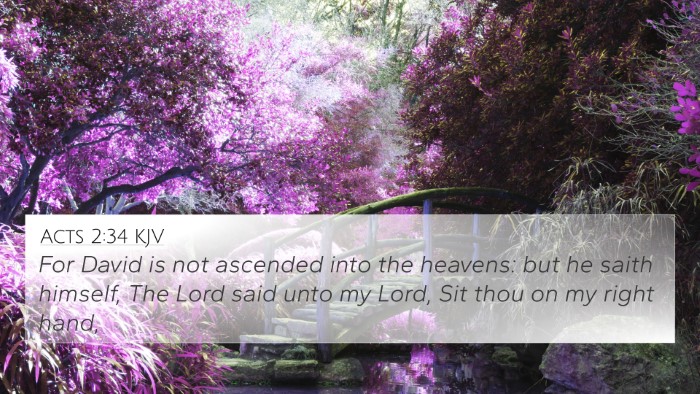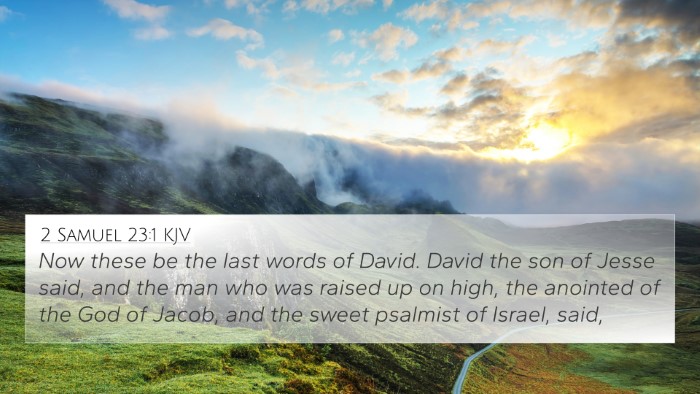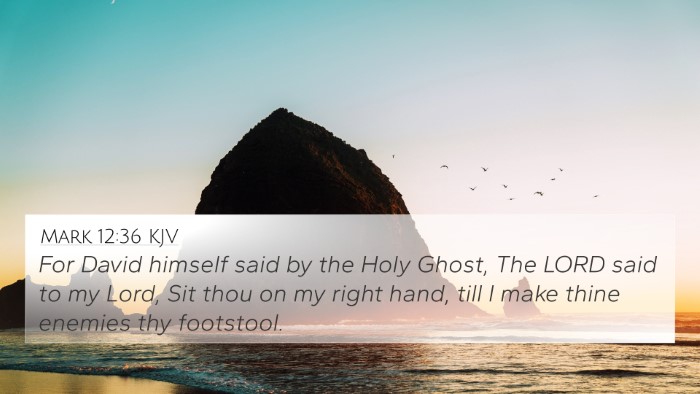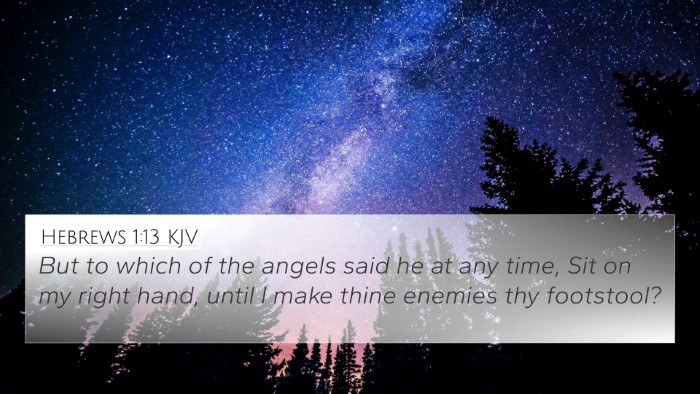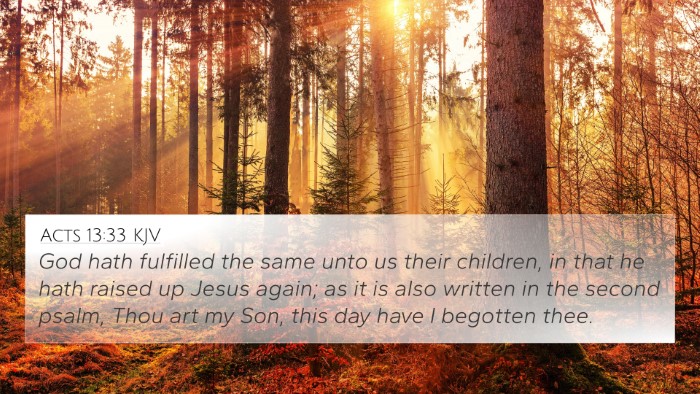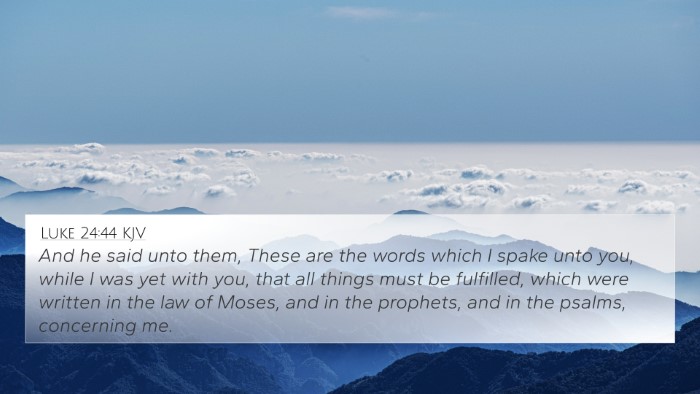Bible Verse Meaning: Luke 20:42
Verse Context: Luke 20:42 states: "And David himself saith in the book of Psalms, The Lord said unto my Lord, Sit thou on my right hand." This verse highlights the significance of David's messianic proclamation and connects to the broader themes of authority and the divine nature of Christ.
Commentary Insights
This verse serves to establish Jesus' authority by showing that even King David recognized the Lordship of the Messiah, indicating a profound theological truth that intersects with various scriptures across both the Old and New Testaments.
Matthew Henry's Commentary
According to Matthew Henry, this occurrence in Luke demonstrates the preeminence of Christ over David, encapsulating the idea that the Messiah is not merely a descendant of David but holds a position of greater authority and power. Henry emphasizes the importance of the words “my Lord,” as it reflects both a personal relationship and divine sovereignty.
Albert Barnes' Commentary
Albert Barnes elaborates on the significance of this verse by noting that it ties the identity of Jesus directly to Old Testament prophecies. He argues that David’s acknowledgment of another Lord underlines the miraculous nature of the incarnation where the divine interceded in human history, confirming that Jesus has a divine right to the throne.
Adam Clarke's Commentary
Adam Clarke adds that this verse reinforces Christ’s divine mission and His rightful position in Heaven, at the right hand of God. Clarke brings attention to the prophetic nature of Psalms, linking our comprehension of Messiahship to the fulfillment of Biblical scripture, characterizing it as a pivotal point in understanding New Testament theology.
Connecting Scriptures
Understanding Luke 20:42 benefits from viewing the verse in the context of several related Bible verses:
- Psalm 110:1 - "The Lord said unto my Lord, Sit thou at my right hand, until I make thine enemies thy footstool." This psalm is the cornerstone of the messianic prophecy that Jesus quotes.
- Matthew 22:44 - Similar to Luke, it reinforces Jesus’ argument about the divine nature of the Messiah.
- Mark 12:36 - Another Gospel that notes the same declaration of David, reinforcing the acknowledgment of Jesus' identity.
- Acts 2:34-35 - Peter quotes this verse in his Pentecost sermon, affirming Christ’s resurrection and exaltation.
- Hebrews 1:13 - Discusses Jesus’ position at the right hand of God, directly correlating to the authority hinted at in Luke 20:42.
- Romans 8:34 - Highlights Christ’s ongoing intercession for believers, illustrating His present role at God’s right hand.
- Revelation 3:21 - “To him that overcometh will I grant to sit with me in my throne, even as I also overcame, and am set down with my Father in his throne.” This reveals a promise of shared authority, relating back to the exaltation mentioned in Luke.
Cross-Referencing Biblical Texts
Luke 20:42 exemplifies the practice of cross-referencing Biblical texts, an essential tool in Bible study. It serves to unveil thematic connections, such as the divine authority of Christ and the acknowledgment of His lordship across various scriptures.
Tools for Bible Cross-Referencing:
- Bible concordances that list verses by topics
- Cross-reference Bible study guides
- Online tools for linking Bible verses and themes
- Comprehensive Bible cross-reference materials for deeper analysis
Understanding the Significance of Jesus' Lordship
Recognizing the connections between Bible verses not only aids in understanding but also enriches the spiritual context of our faith. By contemplating the relationship between David and the Messiah, we unveil profound truths about Jesus' role and identity, affirming His rightful place in the narrative of salvation history.
Inter-Biblical Dialogue
The dialogue across the Scriptures, particularly through the lens of Luke 20:42, showcases how the New Testament continually refers back to and builds upon the Old Testament. This inter-Biblical dialogue invites readers to engage in comparative analysis, revealing how Jesus fulfills the law and prophecies of the Old Testament, thus establishing a coherent narrative of redemption.
Conclusion
In sum, Luke 20:42 serves as a profound reminder of Jesus's authority and divine nature, backed by historical scripture and prophetic foresight. By examining cross-references, we see the unique thematic connections that illustrate the continuity and richness of the biblical message. For anyone seeking to delve deeper into Bible verse meanings, connecting scriptures, and fostering an intertextual understanding of the Holy Scriptures, engaging with texts like Luke 20:42 is invaluable.
